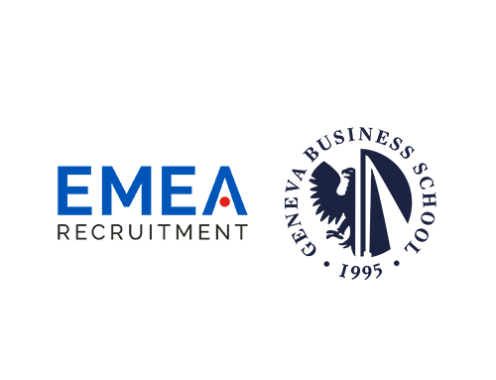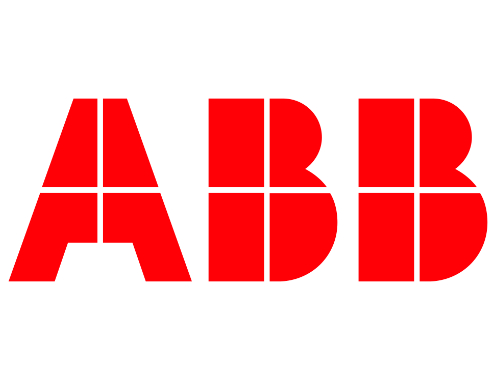
The Strategies you need to Develop Innovative and Diverse Teams – Executive Insights
Creating a culture of Diversity & Inclusion is critical for unlocking innovation across organizations. As we mark Pride Month, we’re looking at the strategies used by some of the most reputable businesses in Europe to promote a sense of belonging in their teams.
According to a leading study by Catalyst, inclusive organizations are twice as likely to meet or exceed their financial targets. The same research found that these companies are six times more likely to innovate, eight times more likely to improve business outcomes, and 35% more likely to outperform their industry peers.
Across leading organizations, leaders are embedding D&I into how they recruit and retain talent, as well as empowering their people, to unlock innovation and create high-performing teams.
We asked senior executives to share the strategies they use for developing diverse teams that drive innovation.
Minimize bias in the hiring process
“The most important factor in developing innovative and diverse teams is attracting the right people while actively minimizing biases during the hiring process,” says Hannes Wengle, Deputy Group Chief Procurement Office at Selecta.
“In my view, affinity bias is particularly critical to address, as it leads to overestimating candidates with similar backgrounds or interests,” he continues. “This bias can hinder diversity and innovation from the outset.”
An essential foundation is to build a broad talent pool with professionals from diverse backgrounds and experiences, while ensuring a competency-based interview process. We’ve written a comprehensive guide to reducing bias in the hiring process for those seeking advice.
Shape an inclusive environment
“If you want to increase the impact, you need to work on the whole environment versus an individual situation or initiative,” believes Christoph Hajjar, the Human Resources Director Switzerland at Heineken.
“By creating an inclusive environment where different perspectives and views are valued and encouraged, team members are motivated to share individual ideas and experiences.”
Laura Montagu, the VP HR EMEA & India at Crocs, Inc., who was previously Senior Director HR EMEA at Under Armour in Amsterdam, agrees: “It’s that sense of belonging, welcoming ideas and inputs, helping people feel safe and connected, celebrating uniqueness, and creating KPIs that really help the team be innovative together.”
Create a culture of empowerment
Hannes focuses on retaining top talent in his team by “creating an environment where people can thrive”.
He explains what this looks like in practice: “This means fostering a culture of continuous learning, development, and empowerment. While general theories about enrichment and empowerment are valuable, I believe the approach must always be tailored. Each individual has unique needs, and what motivates one person might not resonate with another. Leaders must deeply understand their teams, adapting to their dynamics and individual preferences.”
Christoph has seen increased creative solution finding, and stronger team dynamics, through the same approach: “Simply put, generating a workplace where people feel empowered to bring their best self to work is the secret trick.”
Embed purposeful policies and processes
When Laura was with Under Armour, she looked at the company’s policies, processes, and initiatives through a D&I lens to drive impact and create purpose.
For example, in the EMEA region, the organization developed an annual teammate engagement and cultural calendar to celebrate diversity, while employees are invited to regular training and development programs on issues such as racial justice.
“It’s fundamental that you make your environment as safe and inclusive as possible for all teammates,” Laura adds.
This environment not only enhances productivity, but can also reduce employee turnover, says Hannes. With a higher retention rate, “the team remains engaged, innovative, and diverse.”
EMEA Recruitment can not only support with building an inclusive hiring process, but we act as a true talent partner to organizations to ensure Diversity & Inclusion is embedded throughout the employee lifecycle.
If you’re looking for practical advice, get in touch with our team and we will connect you with a specialist in your area.

How to Reduce Bias in the Hiring Process – Executive Insights
Building a diverse workforce can offer many benefits to an organization, but success begins with inclusive recruitment. In recognition of Pride Month, we’ve collected some top tips from senior executives on how to reduce bias in the hiring process.
The business case for diversity and inclusion in the workplace is overwhelming. McKinsey & Company report that companies in the top quartile for gender diversity on executive teams were 25% more likely to have above-average profitability.
Meanwhile, Great Place to Work found that businesses that rank highly for inclusion record 5.4 times higher employee retention – which greatly reduces the financial and time cost associated with hiring replacement team members.
Building diverse teams and fostering inclusivity in the workplace starts with reducing bias among hiring managers and interviewers in the recruitment process, to ensure every candidate receives the same opportunity.
“The first step is to acknowledge that bias exists, and it is therefore critical to create awareness and tools for effectively managing it during the hiring process,” explains Laura Montagu, VP HR EMEA & India at Crocs, Inc., who was previously Senior Director HR EMEA at Under Armour in Amsterdam.
We have collected some top tips from our Executive Interviews series for leaders looking to reduce bias in their hiring processes to build diversity and inclusion across their organizations:
- Training for hiring managers
Identifying potential bias isn’t always straightforward – especially when it’s implicit. Implicit bias refers to attitudes or stereotypes that unconsciously affect how we perceive others.
To challenge this behavior, Under Armour provides mandatory training before each hiring process, Laura says. It’s designed to “build the skills and capabilities to recognize and mitigate potential biases”.
Katja Meeuwsen-Nass, the Vice President of Human Resources at ASICS, shares a similar model: “Our recruitment staff and managers are trained to be aware of and recognize unconscious bias.”
Using an external training provider can mitigate any unconscious bias that exists across the wider organization. EMEA Recruitment works with Coco Consulting & Coaching to provide regular Equity, Diversity & Inclusion training to all employees, which strengthens our service offering to clients.
- Competency-based interviews
Competency-based interviews assess candidates based on a prearranged set of skills, ensuring that all prospective employees are evaluated in the same way and that any unconscious bias during the process is reduced.
Laura explains how this works at Under Armour: “Interviewers determine a score for each candidate against set competencies using a numerical system. It helps us keep our feedback more fact-based, balanced, and fair.”
ASICS also introduced a scorecard to “assess skills and quantify values, to allow for accurate reflection,” says Katja.
Aryuna McGloin, the Financial Planning & Analysis Director at Spryker, emphasizes the importance of finding a cultural fit with the candidate: “For every role across the company, we have a list of specific DNA traits that we look for. That way, we can be sure we’re making a cultural fit, regardless of their background or experience.”
- Diverse interview panels
“We insist on diverse interview panels to help ensure a broad range of perspectives,” says Laura. “It helps mitigate bias if you are hearing ideas, thoughts, and challenges from different sources.”
At ASICS, a diverse hiring committee includes people of different genders and ethnicities, “but also diverse minds to allow for different perspectives and challenges,” explains Katja.
Spryker created a final stage to its hiring process, “whereby we ask someone who sits outside the hiring function to assess objectively candidates’ future potential, leadership skills, etc. to ensure we continue raising the bar with the people we bring on board”, Aryuna adds.
Diverse interview panels not only generate a “higher quality interview”, according to Katja, but Laura also highlights the benefits to potential employees: “Candidates get a deeper and more transparent insight into our culture and feel a greater sense of belonging.”
It’s something that may go a long way in fostering inclusivity once someone joins the business, which could improve retention rates.
We can support you in reducing bias during the hiring process by ensuring your job advertisements include inclusive language and by building diverse talent shortlists for your roles.
We act as a neutral third part in the recruitment process, basing our candidate searches on skills and experience. If you’d like to learn more about our approach to ED&I, please get in touch: www.emearecruitment.com/pages/contact-us

5 Steps to Building Diverse Teams – Executive Insights
Creating diverse teams is a strategic imperative for businesses, from driving financial performance to encouraging innovation. To celebrate Pride Month, we’re sharing key insights from senior executives on how to build diverse teams and foster inclusivity in the workplace.
Laura Montagu, the VP HR EMEA & India at Crocs, Inc., who was previously Senior Director HR EMEA at Under Armour in Amsterdam, explains why diversity is not enough: “It’s about building diverse teams and helping them thrive by creating a strong sense of belonging, while – at the same time – allowing our teammates to feel appreciated for their own uniqueness.”
Organizations with inclusive cultures are twice as likely to meet or exceed financial targets as those without, three times as likely to be high-performing, six times more likely to be innovative and agile, and eight times more likely to achieve better business outcomes, according to a 2024 study by Deloitte.
We take a look at the five steps leaders should take to create diverse teams and foster inclusivity:
- Act as role models
Diversity initiatives can’t rely on policies alone – they should be championed from the top. When leaders embody these principles, they send a clear message to their teams that diversity is a core value of the organization.
“A fundamental starting point is that our leaders act as role models,” says Laura.
It’s a sentiment mirrored by Cristina Stefan, Corporate Business Planning & Performance, Head of Global Opex and HQ Business Control at Wavin, a business group within Orbia: “You need open-minded leaders in place who truly and authentically believe in the power of diversity.”
- Nurture inclusivity
Hiring diverse talent without inclusion can lead to tokenism.
By nurturing diversity of thought, Laura was able to build an inclusive and collaborative community across the entire business at Under Armour, by seeking out different voices and encouraging input and ideas from all levels.
Cristina agrees: “Inclusion is the fuel that powers the diversity engine. It’s how we encourage our minority groups to collaborate and develop, feel valued, respected and empowered.”
At Wavin, one example is creating equal opportunities and flexible working options for mothers returning to work after maternity leave, “so they feel supported and able to thrive”.
- Implement your values
In fact, embracing diversity is a core value at Wavin, which is embedded in everything the business does and – importantly – is constantly evolving.
The organization measures diversity by looking at the gender of those in top positions, how many people with disabilities are hired, what the ethnicity split is, LGBTQ+ representation, and more, explains Cristina.
Alongside recording workforce demographics, businesses can also measure certain hiring metrics, such as the percentage of diverse candidates in the recruitment pipeline and the source of hire, which tracks whether the organization is utilizing inclusive talent pools.
While Laura accepts the data that highlights the impact of Equity, Diversity & Inclusion on a business, she argues that it’s “also just the right thing to do”.
Under Armour reflects this through its policy of providing 40 hours of paid time off for employees to give back to causes they are passionate about. In 2023, the team clocked up more than 6,000 hours.
The business also rolls out regular training for leaders to “build cultural competency and create inclusive environments”.
- Drive diversity initiatives
Orbia has developed projects to target its goal of increasing the representation of women and other underrepresented groups throughout its five business groups (including Wavin) and leadership pipeline.
Cristina explains how this looks in practice: “The company has developed initiatives from talent acquisition guidelines to our Orbia Women’s Network (OWN) mentorship program, which is helping to accelerate the development and visibility of female talent in what tends to be a very male-dominated industry.
“It’s a good example of inclusion in action, because it encourages people to speak up, to turn challenges into opportunities with a positive mindset, show empathy, and benefit from different perspectives.”
Cristina summarizes her experiences for other leaders: “That blend of diversity and inclusion is how you create strong, brave teams and a working environment where everyone can perform at their best.”
- Review hiring processes
An essential step for leaders looking to create diverse teams and foster inclusivity within the organization is to review your current hiring policies.
By tracking diversity metrics within the recruitment process, you will be in a better position to understand any areas you can address and improve. It is also important to reduce bias during candidate selection and interviews, by ensuring your requirements are competency-based.
At EMEA Recruitment, we act as a neutral third party in the recruitment process, basing our candidate searches on skills and experience. We also utilize Inclusive Linguistics principles in all communications with prospective employees to encourage applications from a diverse pool of professionals.
If you need any support with building diverse talent shortlists, please contact us to find out how we can help.
We’re proud to be the ED&I recruiter of choice for some of the most prestigious businesses across Europe.

Why Hiring HR Professionals is like Pairing Cheese and Wine
With over 20 years’ experience leading HR teams across diverse industries in Europe, Armand Sohet has hired many HR professionals. Here’s why he compares it to pairing cheese and wine…
Armand Sohet is the Chief Sustainability, HR and Communications Officer at AkzoNobel in Amsterdam. His experience ranges the automotive, pharmaceutical, software, defence, and energy sectors.
“A question people very often ask me is: What is it about recruiting and assessing HR people?” Armand says.
Pairing cheese and wine
An image came to him while presenting to a Swiss-German audience – it’s like pairing cheese and wine.
“Imagine you buy a fabulous bottle of Petrus or Cheval Blanc - a very expensive, €1,000 bottle. You’re thrilled, thinking, this is going to be an experience of a lifetime! So, you grab a camembert (because it’s French and it feels like the right pairing for a fine French wine), but then you try them together, and - let’s be honest - it’s terrible. You wouldn’t admit it, of course, because it’s such an expensive bottle, so you convince yourself it’s good.
“But it’s awful, because the lactic acid in the camembert will always clash with the Cabernet Sauvignon or Merlot in the wine, leaving a metallic taste that’s just unpleasant. I tested this with people who didn’t believe me, and they agreed. So, I said, “Instead of spending €1,000 on this wine, why not just get a €7 bottle of cider to go with the camembert, or maybe a ten or 15-year-old champagne? The bubbles in the champagne will help balance the lactic acid, and it’ll actually be a great experience.”
How does this apply to HR professionals?
In his personal life, Armand enjoys finding the perfect wine and cheese combination, but it’s much harder to find the best match between people and a company, he believes.
“Imagine the cheese is your company and the wine is the person you’ve brought into it,” Armand explains. “You’ve hired the bottle of wine, because it’s prestigious and expensive, but it doesn’t fit. It’s not necessarily a good match, even if it costs a lot.”
So, what is he looking for in his team?
“Sometimes, people are like Swiss wines – a red that goes well with nearly anything,” he shares. “They don’t always stand out as the best, but they fit in well with a lot of different settings.”
Whether you’re looking for a Petrus or a Sauvignon blanc, our HR recruitment specialists are committed to finding the perfect match for your team.
From large-scale restructuring to building teams from scratch, EMEA Recruitment has experts with a wealth of experience in HR who can help – get in touch through our website: https://www.emearecruitment.com/pages/human-resources
Armand spoke to Katie Insley, Director in our HR recruitment division, as part of our Executive Interviews series in April 2025.

Strategic Hiring Leads the Way in a Cautious Q1 HR Market
Although the market for HR professionals in the Netherlands remained cautious in quarter one, strategic hiring drove the market with a number of critical skillsets in demand.
As the financial year ends, professionals begin considering new career opportunities, making April and May particularly busy months.
While companies have been cautious, due to macroeconomic factors, an increase in Talent Acquisition requirements suggests that they are beginning to hire again.
Growth in Technology & Transformation roles, particularly those related to AI, is also expected to continue.
Meanwhile, more organizations are relocating roles to lower-cost regions. While transactional roles have traditionally been affected, higher-skilled positions are now being moved.
The Return-to-Office Debate
The return-to-office debate intensified in quarter one, with more companies issuing blanket return-to-work statements.
A shift toward more in-office presence continued, with many organizations moving to a four days in the office, one day from home model. Conversations shifted from work-life balance to work-life integration, which we anticipate will continue to evolve.
Within the HR team, leaders are telling us that togetherness and spontaneous interactions are increasingly valued, where gauging company sentiment and fostering a strong workplace culture is essential. Building a digital culture and infrastructure is also becoming more of a growing trend in the Dutch market.
Shifting Skillsets
While AI and data-driven roles remain a key topic, businesses are still in the early stages of their technology journeys. Companies are working to understand how they can best leverage AI, and while this will be a long-term trend, it has yet to fully take off.
To best support those in our network trying to manage these shifts, we have strengthened our partnerships with HR leaders, particularly those new to their roles, over the past quarter. It often takes around three months for HR Directors to assess an organization’s success, and we have been actively supporting them in their transition by providing market insights and staying abreast of the latest trends.
As we move progess into the next quarter, we remain committed to supporting our network with insights, guidance, and career opportunities. If you’d like to discuss hiring trends or explore new opportunities, please don’t hesitate to reach out to Katie Insley, Director in our HR recruitment team in the Netherlands.

Finance Recruitment in Switzerland: Technical Skillsets in High Demand
Jenny Callum, Manager of our Swiss Finance & Accounting recruitment team, reviews the recruitment market in Switzerland...
As we predicted in January, economic growth remained steady in Switzerland over quarter one, with particular progress in the manufacturing, retail, electrical engineering, and logistics industries.
With growing pressure on Switzerland's businesses to drive growth, hiring managers were looking for a more streamlined and efficient hiring process in order to source the right talent to take the business forward.
As a result, there has been growing demand for video shortlists prior to interview, as hiring managers seek to judge softer skills earlier in the hiring process to ensure the right personality fit.
This is saving businesses time and money, and ensures personal and technical skills can be fully evaluated before taking candidates forward to meet the business.
Niche Skillsets in Demand
Tougher market conditions are also driving demand for hybrid skillsets. For example, demand for Financial Controllers with cross-functional business partnering experience remains, while Accountants with Power BI expertise are highly sought-after – especially those with industry-specific skillsets in logistics, audit, and the Big 4.
In response, we witnessed a rising trend in candidates taking the initiative to upskill in Data Science, with increasing interest in machine learning and AI.
There is a growing curiosity about the level of technical expertise required for senior Finance roles: Should leaders have direct knowledge, or is it acceptable to manage those with specialized skills?
As businesses navigate workforce changes and look to prepare for the future, detailed market insights are becoming more important than ever, so if you’d like to discuss what’s happening in your industry and with your competitors, let’s arrange a time to chat. Or if you’d like to explore new opportunities yourself, please don’t hesitate to get in touch with me at [email protected]

EMEA podcasts
The EMEA Recruitment podcast welcomes guests from across our network and beyond to share their career journeys, advice, and inspirational stories.























You can also use your social account to sign in. First you need to:
Accept Terms & Conditions And Privacy Policy